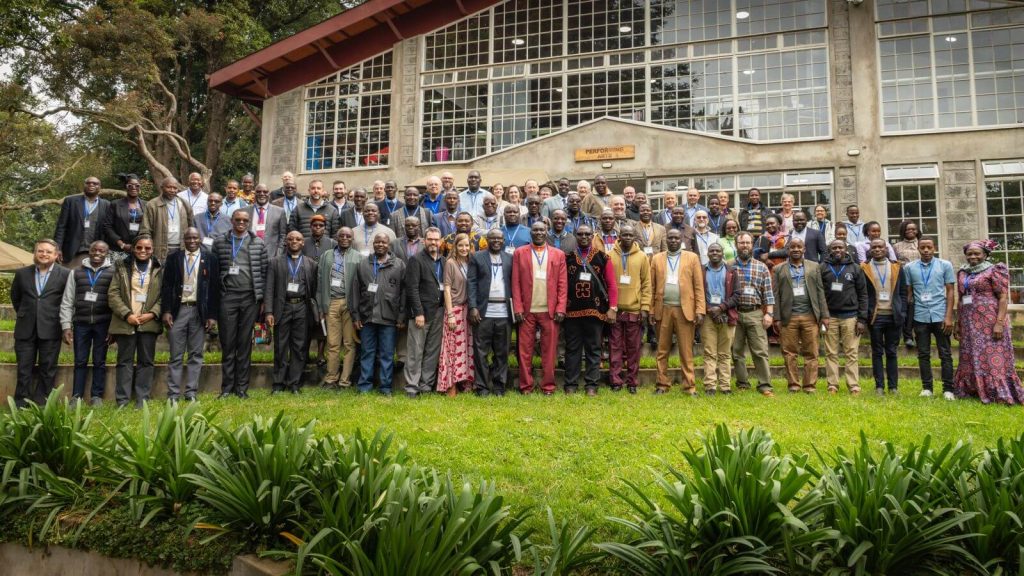
It was a great joy and privilege to represent NBTS at the African Baptist Theological Education Network (ABTEN) Conference held in Brackenhurst, Limuru, Kenya between July 8 and 12, 2025. A total of over one hundred in-person and online attendees represented more than 20 institutions from across Africa and beyond. Countries represented at the conference were Angola, Botswana, Cameroon, Cote d’Ivoire, Kenya, Liberia, Madagascar, Malawi, Morocco, Nigeria, South Sudan, Tanzania, Uganda, United States of America, Zambia, and Zimbabwe.
The theme for the Conference was ‘Sound Doctrine, Sound Living’. The keynote speaker was Dr Conrad Mbewe, the founding principal of Christian University, Zambia. There were fourteen plenary sessions in all; two of them being times for group discussion. In addition to Dr Conrad Mbewe, there were twelve other resource persons from different countries from both within and outside Africa. Other resource persons included Rev. Dr Babatunde Ogunlana (of Baptist Theological Seminary, Kaduna, Nigeria) who spoke on ‘The Bible as the Word of God for all Times’; Mr Chad Pumpelly (based in Kenya) who spoke on Biblical Authority: ‘The Centrality of the Bible in Upholding Strong Doctrine’; Dr Trevor Yoakum (Serving in Togo) who addressed the conference on ‘Theological Education Curriculum, Publication and Sound Doctrine’ (How Curriculum Impacts Doctrine) and John Kutsko from USA who spoke on ‘Literature and the Preservation of Sound Doctrine in Theological Education’ and also facilitated sessions for librarians along with Mrs Margaret Tarpley (also from USA), supported by Ms D’Anna Shotts (serving in Nigeria) and others.
‘Honour-Shame Cultural Paradigm and Sound Doctrine’ was delivered by Dr Martin Munyao from Kenya who described himself as a Pastor-Scholar. Dr Momlolu Mosaquia of Liberia lectured on ‘The Prerequisite for the Training of a Doctrinally Sound Pastor’ among others. Dr Kevin Rogers led a panel discussion on ‘Signs of Misleading Theologies; and a group discussion on ‘Models for Safeguarding the Sound Doctrine of the Church’ was led by Dr Faly Ravoahangy from Madagascar. There were also times for worship daily, a resource fair where materials were made available for sale from various countries and providers of Christian resources; a business session; a meeting by Regions and consistent fellowship over meals among other things. Some of the lessons learned and clips gleaned from the teaching sessions and discusiion groups are summarized in the next few paragraphs.
The Keynote Speaker, Dr Conrad Mbewe spoke on many aspects of the theme such as ‘The Relationship Between Sound Doctrine and Sound Living’, and The Person of Christ in the Centrality of Doctrine’, among others. Dr Mbewe explained how the disconnect between doctrine and living is one difficult to understand and accept. He attributed this disconnect to the weakening of the Christian witness. Normally, sound doctrine is linked with sound living and should produce stronger Christians while unsound doctrine leads to unsound living. Considering the principle of head, heart and hands; the truth we know should affect what we believe and do. Dr Mbewe challenged theological educators that students and immediate families should see more and more of Christ in us so they will seek more and more of God.
Furthermore, Dr Mbewe challenged Theological Institutions to avoid disconnect with churches. While in training, students should be recommended to churches where sound doctrine is being taught and lives of the leaders are exemplary so they can see the connection in the life of the leader and the theory of doctrine they are learning. Speaking on the person of Christ in the centrality of Doctrine
Dr Mbewe noted that in our quest to be authentically African, we tend to overdo it and emphasise culture and Africanness above emphasisng Christ. Christ does not belong to anybody, he emphasised. We are the ones who belong to Him. Trying to be original in research and our studies, we tend to major in minors and leave out our focus on Christ; thus moving away from Christ, the major in our message. The result is that the congregation doesn’t feed on Christ. We need to make Jesus take centre stage. He is worthy of being at the centre! (John 1:1-5,14 & Phil 2:5 – 7) NOT that Jesus ought to be at the centre of Christian doctrine but He IS THE CENTRE of Christian doctrine. Thus, the goal should NOT be to make Christian African BUT to make Africans Christian.
Associate Professor Babatunde Ogunlana , speaking on ‘The Bible as the Word of God for all Times’ gave definitions of the Bible from various sources which emphasised the Bible as a divine gift from God, the definitive standard for Christian faith and life; the reliable source of both truth and wisdom from God Himself and the standard for a believers life; having transformative power to bring change to lives of people, etc. (Sources he referred to included John Murray and Montang et al).
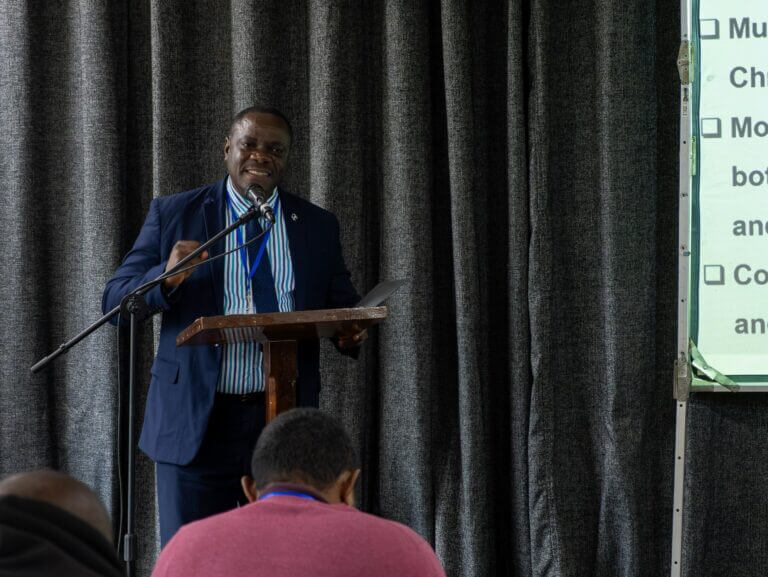
Dr Ogunlana emphasized that the Bible must be interpreted in its context. God expects this from us regardless of our area of specialization. He challenged participants to make the Bible relevant for African the African context. He concluded that as Hebrews 4:11 states, the Word of God is active and sharp … living, active. Its message remains effective and transcends life and culture. It speaks to human condition with clarity and depth. It has power to shape lives and everything and is truly God’s Word for all ages.
Mr Chad Pumpelly speaking on Biblical Authority surmised that the Bible is the centre of Sound Doctrine because it represents God’s voice and special revelation to the church. Furthermore, the Bible’s credibility is found in the authority of Christ. Taking participants down the memory lane of Christian history, he reminded of how about 500 people were killed for their faith in a given context and they did not recant to the glory of God! He challenged participants to use the Bible to understand God and the world because without the Bible at the centre, we become unanchored from the Source.
Dr Trevor Yoakum, an American serving in Togo, spoke on ‘How Curriculum Impacts Doctrine’. Making use of several African proverbs, he drove his point home. He presented the Bible as the Word of God for all times and noted that doctrinal faithfulness is required in curriculum. To ensure doctrinal fidelity, we have to be deliberate about our curriculum, he stated. Curriculum should be based on Christian doctrine – the goals, objectives, vision, mission, pedagogy, everything that makes up the curriculum inclusive!
Rev. Dr Clifford Y. Fanfon from Cameroon serves as the current Convener of West African Region of ABTEN. He spoke on ‘The Role of Theological Education in Defending the Truth’. Referencing John 18:38 where Pilate asked Jesus ‘what is truth?’ he noted that Theological education is all about the truth – it is embodied in Christ and God’s Word. Thus the church and Christian educators should ensure we focus on the TRUTH – which is exclusive.
Dr Fanfon enumerated the ‘Role of Theological Education in Defending the Truth’ as including to: Counteract false teaching; Advance the gospel, Preserve orthodoxy eg the family as God planed it; Address societal ills eg sexual immorality and promiscuity based on seeking value – we are valued in Christ; Equip ministers biblically – members want to know what Bible states about gambling, etc.; Foster spiritual growth and character development – those who come to Seminary should have been dealt with by Christ, already have character training which is being built on. He recommended that theological institutions should appoint spiritually mature Faculty, Re-centre their curricula on Christ, emphasize discipleship in admission, Cultivate Christian family values, and Clarify institutional vision and doctrine.
Literature and the Preservation of Sound Doctrine in Theological Education was the topic
John Kutsko (USA) spoke on. He called attention of participants that publishing is about passion and relationships – because people write about what they really care about. Writers form relationships with the publisher and readers they may never meet and thus, are a source of sound doctrine. The Prerequisites for the Training of a Doctrinally Sound Pastor is that the church of Jesus Christ is entrusted with the vital task of proclaiming God’s truth and shepherding His flock. Spiritual foundations, character virtues and practical skills are key for a sound pastor, he stated. Biblical Foundation for Pastoral Training includes the Call of the pastor. The purpose of the call of pastors is to equip people to teach and defend sound doctrine. The necessity of a personal salvation experience as found in John 3:3 cannot be over-emphasised.
Dr. Kevin Rogers spoke on Foundational Principles and Misleading Theologies. He noted that misleading theologies have been from the beginning and they often originate with the devil. He explained further that deceptive theologies often question the goodness of orthodoxy and replace it with something only the deceiver possesses. Furthermore, misleading theologies often find fertile ground in the hearts of those who lack a strong theological foundation. The confusion Eve experienced is like what happens when biblically illiterate people are confronted with misleading theologies. They cannot easily identify misleading theologies. Just like those who are trained to recognize fake money; the more grounded one is in God’s Word, the better they can detect false doctrine and misleading theologies.
‘The Theological Educator and Sound Doctrine: More than Academics’ was facilitated by Mr Eric Lockhart (an American based in Uganda).
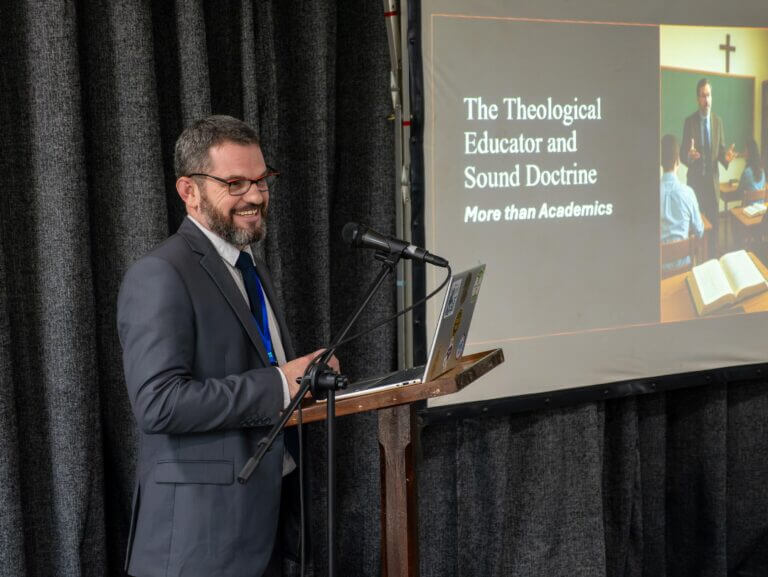
His presentation brought an interesting dimension to the discourse. His initial plan to speak on the theological educator as one committed to sound doctrine, convicted by sound doctrine and as conveyor of sound doctrine was modified when he considered the images of a theological educator as provided by Artificial Intelligence. Images differed based on prompts given and generated interesting thoughts and comments in the room. My strong take-away from this discourse is that the theological educator’s ‘profile’ goes beyond the theory they teach but is seen in how they live, behave, interact and deliver their mandate. Theological educators owe it to God and the people they minister to, to be all-rounders in the teaching and living of doctrine.
A discussion time on ‘Models for Safeguarding the Sound Doctrine of the Church’ was facilitated by Faly Ravoahangy from Madagascar Dr Ravoahangy made it clear that the way to safeguard the sound doctrine of the church is by defending sound doctrine through Biblical literacy (Guard the Bible (Truth) using specific guidelines because of the mandate given); Biblical leadership (Leaders are the examples. They must be able to keep God’s Word and teach it); Biblical lucidity (We must test all teaching against God’s Word. We must filter all we hear); Biblical Lifestyle and Biblical Love (including discipline). Different groups discussed these five points and came up with practical ways they have been doing these or can do them. The group on biblical literacy came up with ways to do better in biblical literacy as listed below:
- Start with children – lead them to memorize scripture and hide it in their hearts
- In Malawi a grand narrative was introduced so people can have oral memory of God’s Word. This can be adapted, adopted or replicated.
- Have disciples whom you ask God to give you. For example some have a plan where they read a chapter a day from the Old Testament and three chapters a day in the New Testament, asking God for one truth. This is shared by a call or text with the disciple or mentor and then at end of three years, mentees are challenged to do likewise.
- Read the Bible and don’t just talk about it. Give time to public reading of the Bible – read not just few verses but chunks in church. Also, read scripture more in classes and in teaching and presentations. Make sure people properly digest what is in scripture.
- Use of audio Bible in Zimbabwe. This works well with oral cultures; others can also use this.
- Use video Bible with relational people (visual acting of the scripture and there is a voice over) – see lumo for examples of this.
During the business meeting on July 11, 2025; some of those who had served in the Continental Steering Committee rotated off and new ones were elected through their Regions. Those who rotated off were Rodney Masona from Zambia, Sylvain Allaboe from Togo; Moses Audi from Nigeria; James Clark serving in Botswana; John Kamau from Kenya and D’Anna Shotts serving in Nigeria. Those staying on in the Continental Steering Committee are: Baz Bhasera from Zimbabwe, Nirintsoa Mamitiana from Madagascar, Ellie Swörö from South Sudan, Eric Lockhart serving in Uganda, David Echau from Uganda and Helen Oyekanmi from Nigeria. New key officers for the 2025 – 2027 Continental Steering Committee are as follows: Eric Lockhart as Convener, Baz Bhasera as Vice/Assistant Convener and Olusola Ayo-Obiremi as Recording Secretary.
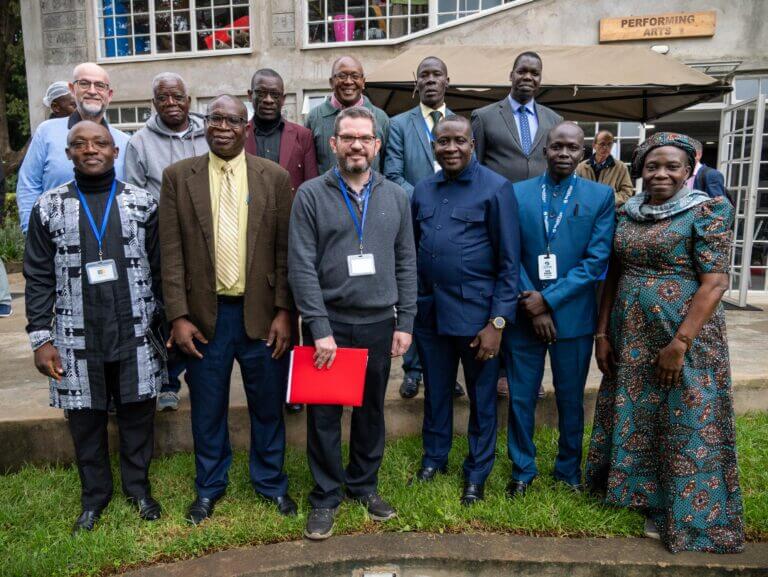
In all, the journey was one worth taking for multiple reasons. The rich Christian fellowship, the education received, application of topics to theological education and the implications for NBTS are all not to be forgotten in a hurry. NOTE: Details of the teachings and other matters of interest are available in fuller form on the ABTEN website – www.abten.org.
My summary of the organization is that ABTEN is a doctrinally balanced Christian (Baptist) Association that meets continentally every other year and in regions the years in between. It is a warm fellowship of (Baptist) Christians who are passionate about God, Christ and the work of the Holy Spirit through God’s Word and His people. ABTEN conferences are THE place to be while they hold. They are educative, engaging and spiritually uplifting. You cannot afford to miss them if you are a theological educator or someone whose heart is in theological education!
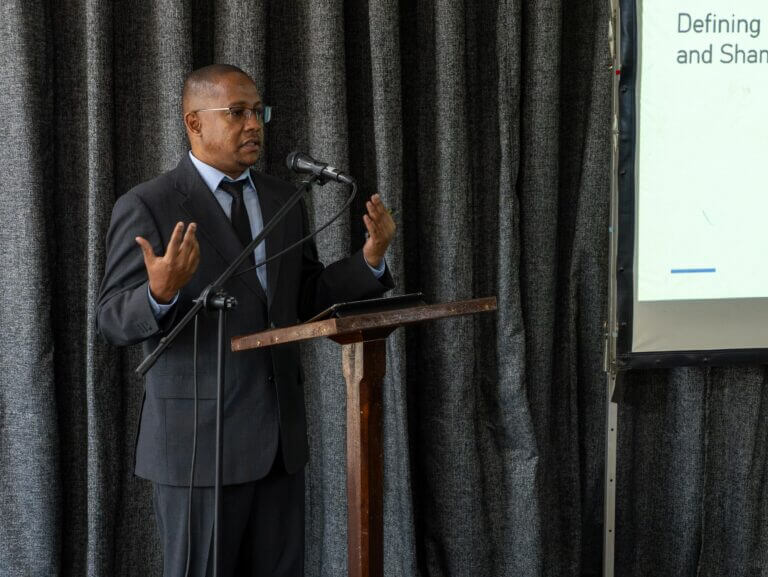
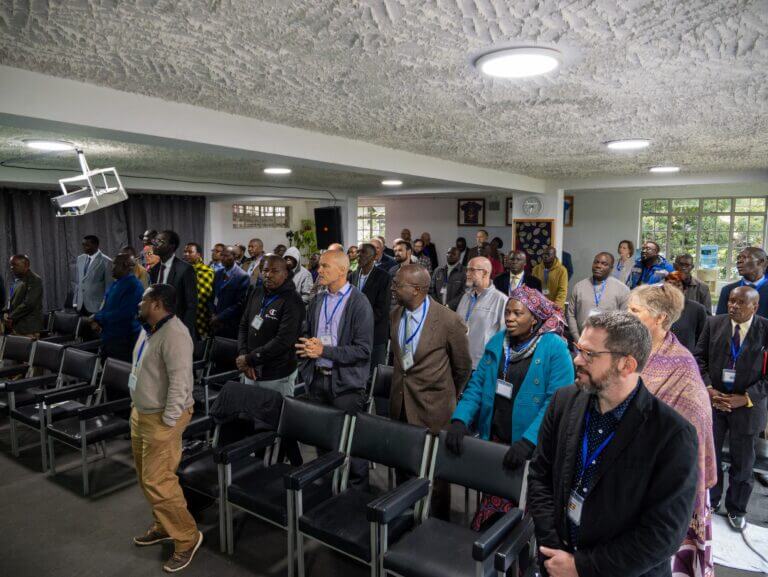
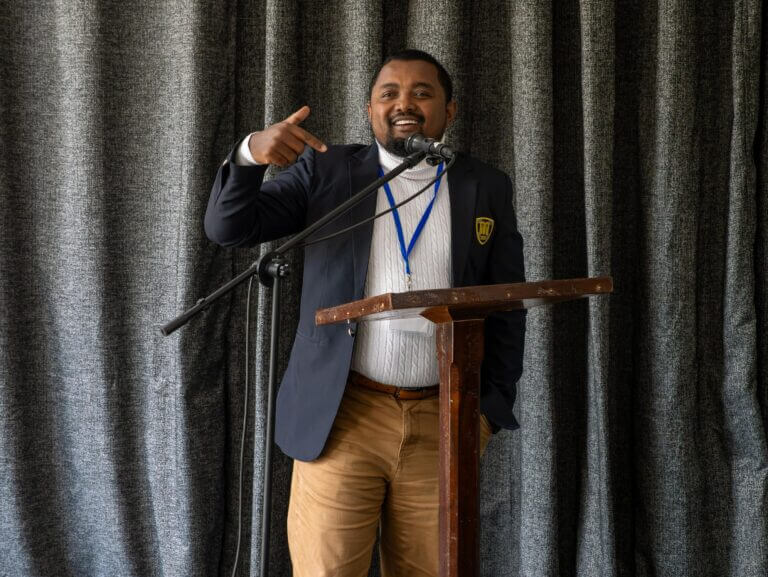
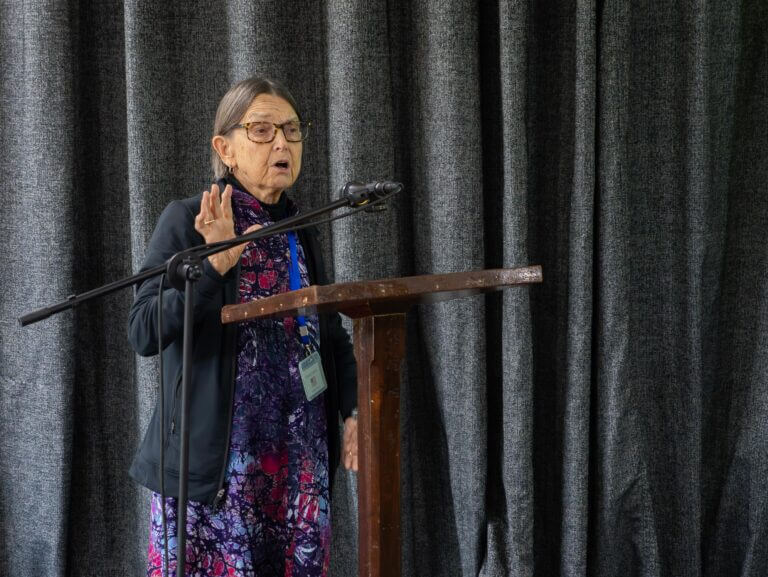
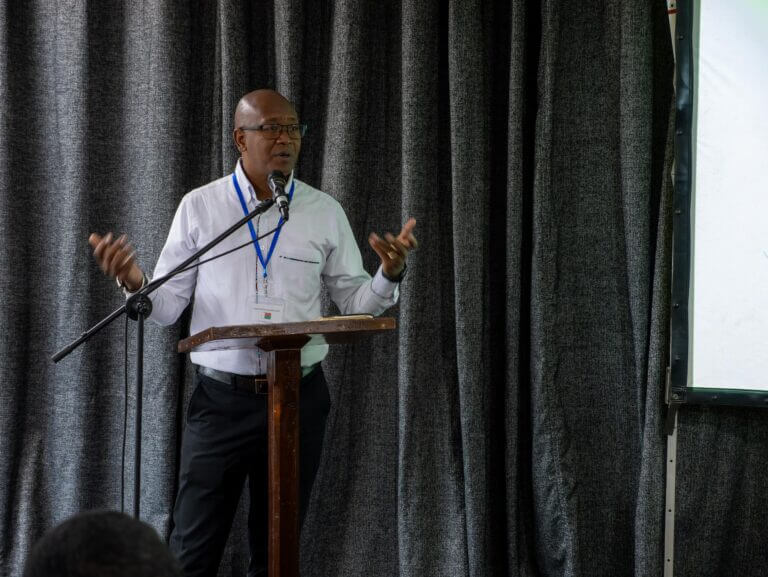
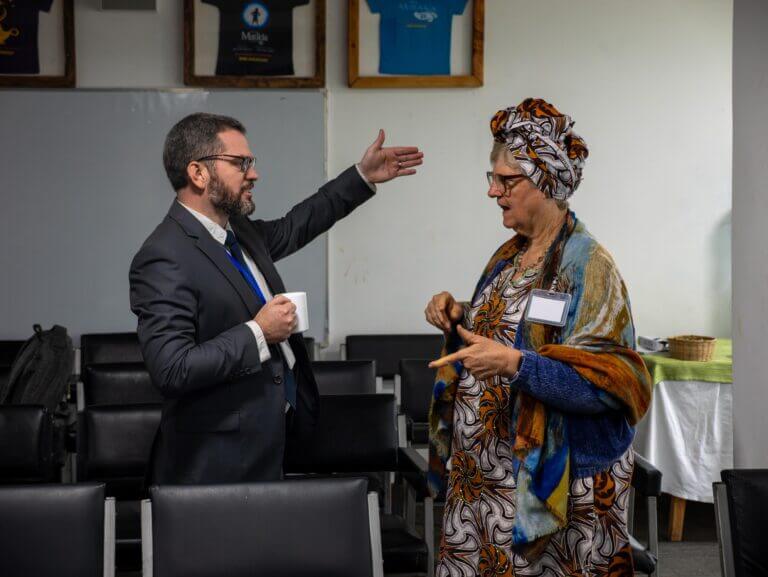
Olusola Ayo-Obiremi
Deputy President Advancement
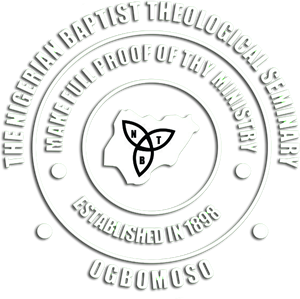
0 Comments